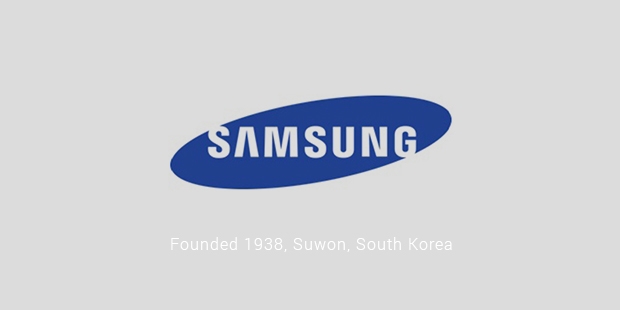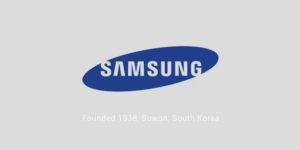
Apr
 The Samsung Group is a South Korea-based conglomerate company that makes everything from dishwashers to smartphones, has become one of the most powerful and recognizable names in tech.
The Samsung Group is a South Korea-based conglomerate company that makes everything from dishwashers to smartphones, has become one of the most powerful and recognizable names in tech.
A lot of people are even lumping Samsung together with Apple, Facebook, Microsoft, Amazon, and Google as one of the most important tech companies right now.
So how did Samsung get to where it is today?
We took a look at the company’s history, starting way back in 1938 when it was a company that exported dried fish to China.
1- In 1938, Lee Byung-Chull launched Samsung in South Korea as a grocery shop.
2- In 1940, due to tight competition in the grocery segment, Samsung abandoned grocery for producing and selling of noodles.
3- In 1950, Samsung abandoned production of noodles for producing of sugar.
4- In 1954, Samsung left sugar and started a woolen mill in Korea.
5- In 1956, Samsung abandoned woolen mill and started selling Insurance and securities.
6- In 1960, Samsung left selling of insurance and securities for production of television – the black and white television. Not color television.
7- In 1980, Samsung switched to telecoms, producing telephone switch boards.
8- In 1987, Lee the founder and owner of Samsung died. The company now broke into four independent companies- department stores, chemicals & logistics, paper/telecom and electronics.
9- Same year, Samsung decided to focus on international investing, investing in plants & semi conductor facilities around the world.
10- In 1990, Samsung delved into real estate abandoning international investing in semi conductors. Samsung built the worlds tallest buildings: Petronas Towers Malaysia, Taipei 101 in Taiwan
11- In 1993, there was heavy recession and Asian markets went belly up, Lee’s son who had succeeded him as the CEO of Samsung began downsizing, selling subsidiaries and merged the rest.
12- With the merging of the electronics, engineering and? chemicals division, Samsung became the worlds largest producer of memory chips.
13- In 1995, Samsung switched to liquid-crystal displays and over the next 10 years became the worlds largest manufacturer of flat screen television.
14- In 2010, with liquid crystal displays becoming competitive, Samsung launches a 10 year growth strategy, with smart phones being a key focus.
15- In 2016, Samsung is worlds largest mobile and smart phone maker, outselling iPhone two to one.
Samsung sales today is more than $250 billion and produces more than fifth of South Korea’s total exports.
Don’t be afraid of change. If you don’t change, you become insignificant. Don’t be afraid of delving into new waters. Don’t get stuck doing same thing over and over again, it’s boring. The life is in the risk. The life is in the new!!!! If your idea isn’t working or you are stagnant, don’t stick to the Glorious’ past, take the risk and move on. It’s far better than being stagnant!
Source:Livewire.com

